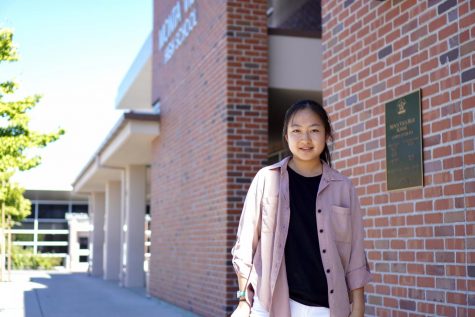Media bias in the democratic debates
The unfair treatment of presidential candidate Andrew Yang in the face of media bias
September 17, 2019
“Holy sh*t. They did it. The crazy bastards did it.”
This is what Scott Santens, an advocate for basic income, tweeted after noticing something off on MSNBC’s live broadcast. The news channel portrayed a graphic of the 20 democratic candidates in grids, but someone was missing. MSNBC had replaced Andrew Yang’s picture with a candidate who didn’t qualify for the democratic debates. Yang’s supporters were shocked to see him removed from the list of running presidential candidates, and consequently, the movement #YangMediaBlackout rapidly spread throughout Twitter and other social media platforms.
But it didn’t just stop there. It happened again, and again and again.
Holy shit. They did it. The crazy bastards did it. @MSNBC created a graphic with photos of the 20 candidates to appear in the first debates, and they actually went so far as to remove @AndrewYang and include someone who didn’t even qualify. This is shameless in how brazen it is. pic.twitter.com/IOD2dxwFcY
— Scott Santens (@scottsantens) June 22, 2019
Yang was frequently excluded from news polls and statistics about the 2020 elections. Many times after the aforementioned incident, MSNBC’s poll visuals left an empty space in the place of Yang’s name. Reporters would block his face when reporting about the polls. Similar incidents have been occurring on CNN as well.
I did the #MATH, looks like @nbc may have miscounted
pic.twitter.com/3iLqfl6dOX
— Andrew Yang (@AndrewYang) September 6, 2019
Oddly, this has not happened to any other candidate in the 2020 elections, which raises the question as to why Yang is being excluded from these statistics.
Chris Cillizza, a CNN reporter, believes that the lack of media attention on Yang is due to his unique and radical ideas — like universal basic income and abolishing the penny — and identity as an Asian American. He claims this will somehow make it hard for reporters to interview Yang.
Although Cillizza’s view on Yang’s hard-to-address policies are valid, his statements do not justify MSNBC calling him “John Yang” instead of “Andrew Yang,” or leaving his name out on major presidential polls and statistics in its news broadcasts. Situations like these stem from a larger problem of sheer ignorance as depicted by the nonchalance and indifference towards errors concerning Yang.
During the democratic debates, Yang was rarely asked questions about his policies. During the Sept. 13 debates, Yang placed last in total talk time with just shy of eight minutes, compared to former vice president Joe Biden’s 17.4 minutes, the longest talk time. With his firm ideas on universal basic income and catchy slogan — “Make America Think Harder” — one would think he deserves to be addressed just as any other candidate would.
The real cause behind this situation lies in Yang’s race, which is infuriating yet not surprising considering our nation’s history of anti-immigration laws and oppression of minorities and foreigners. Despite not being any less qualified than other candidates, Yang seems to have to repeatedly establish his credibility and rightful place in the elections in spite of media opposition. The media literally excludes Yang, forcing him to start a few steps behind the rest of the candidates.
The model minority myth perpetuates harmful stereotypes of Asian Americans and places the entire race in a little box — a group of law abiding individuals who are more successful than the average population through their supposedly superior academic capabilities and other factors like income.
While it may come off as a positive trait, it’s negligent of the Asian Americans who simply choose different lifestyles and professions such as politics. When individuals stray away, society attempts to force them back into their box, and Yang is no stranger to this pressure. As an Asian American individual on the political stage, vying to become the most influential figure in America, many are trying to erase Yang and essentially silence him.
However, MSNBC excluding Yang has not lowered any awareness of Yang’s popularity, but has instead, led him to enjoy more media attention across all platforms, where Yang’s supporters have spread Twitter threads with the #LetYangSpeak and have raised awareness about the media bias on MSNBC.
It’s important to uplift individuals like Yang, who should be given the same amount of political attention and respect as the other presidential candidates. Everyone deserves an equal voice and say in their race towards presidency. Accidents happen, but in the face of media bias, it’s more than just a miscount.



















